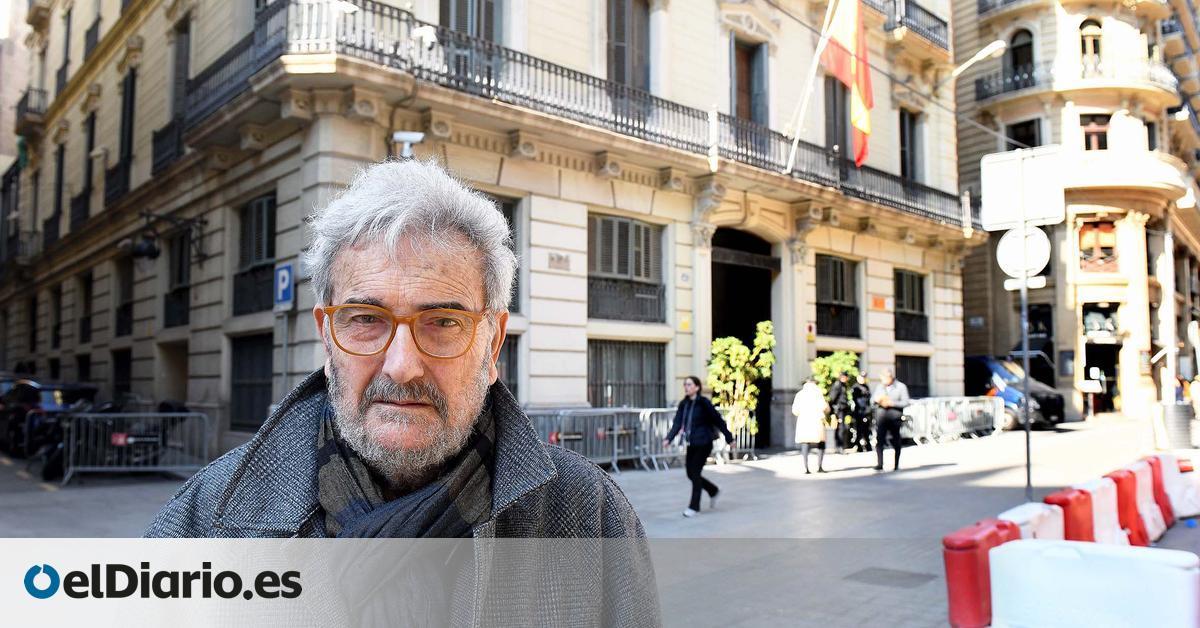
Change of criteria. The Prosecutor’s Office has rectified and has now supported opening a case and investigating the torture suffered by the PSUC activist Carles Vallejo at the hands of Francoist police at the Via Laietana police station in Barcelona. It is the first time after the approval of the new Democratic Memory Law that, in a criminal case, the Public Ministry supports investigating the crimes of the dictatorship.
The first victim of Franco’s regime to testify before a judge: “It is beginning to break the wall of silence and impunity”
Further
For the new position, the intervention of Dolores Delgado has been relevant. The former State Attorney General is the new prosecutor of the Human Rights and Democratic Memory Chamber, a figure who created the norm approved last legislature.
In her first report, last June, the Barcelona prosecutor asked the judge to reject the admission to proceedings with the arguments that the victims of the dictatorship had been encountering in court for four decades. These are that the torture was prescribed and could not be investigated under the Amnesty Law of 1977.
The fact that the prosecutor did not even mention the new Democratic Memory Law caused surprise and disbelief in Vallejo and the victims’ groups, as well as in the Generalitat, which appeared as an accusation in the case.
The complainants had seen the new norm, approved in 2022, as a hope to at least investigate the torture to which Franco’s uniformed officers subjected him for his fight against the dictatorship.
“The victims have been waiting for this step from the Prosecutor’s Office for many years,” said the co-director of the Iridia center, Anaïs Franquesa, one of the entities that supports Vallejo’s complaint.
Vallejo’s complaint, filed against six Franco police officers for torture and crimes against humanity, is also very symbolic, since the torture for their political and union activity against the dictatorship occurred at the Via Laietana police station, known as the ‘house of the horrors’ by the anti-Franco groups. Entities and parties want the space, which currently houses the National Police Headquarters in Catalonia, to be converted into a memorial to the dictatorship.
The significance of the new document from the Prosecutor’s Office lies in the fact that it is the first favorable position to investigate Franco’s crimes by the Public Ministry since the approval of the new norm, which the victims saw as a gap in the face of the traditional refusal of the courts to clarify the crimes of police and officials of the dictatorship.
In Madrid, the judge opened the case to investigate the torture of an anti-Francoist without processing it to the Public Ministry, so the Prosecutor’s Office had not yet expressed its opinion in writing. Last Friday, however, two prosecutors, one of them from the new specialized prosecutor’s office, did attend the testimony of the first victims to testify before a judge.
As reported by the Barcelona Prosecutor’s Office, the new Democratic Memory Law imposes on the State “the duty to investigate” violations of Human Rights and International Humanitarian Law that occurred during the Civil War and the Franco dictatorship.
Based on the new norm and the analysis of the international treaties and agreements signed by Spain, the Prosecutor’s Office has concluded that the case should not be archived outright, as the Public Ministry had requested in July, but that it is necessary to “carry out an investigation of the facts and their context before adopting a decision on the continuation of the procedure.”
In its new report, the Prosecutor’s Office recalls “the obligation to guarantee not only the right to justice, but also the right to the truth and reparation for the victims.”
In statements to the EFE agency, the chief prosecutor of Barcelona, Neus Pujal, has maintained that with this initiative the Public Ministry is “opening the way” and that the objective is “to provide reparation to the victims, put them in the center, because they need reparation.” and it has to be through the courts.”
Pujal has acknowledged that it is a “controversial” issue, in which “there are many interpretations and many opinions and many people give their opinions”, so it is “not easy” to investigate the crimes of Franco’s regime and the civil war that until now Amnesty Law prevented persecution.
The chief prosecutor has stressed that the Prosecutor’s Office’s objective is to “reach the end of the procedure” and for the perpetrators of the crimes to appear before justice, if they are identified, as is the case of the Barcelona complaint.
Source: www.eldiario.es

